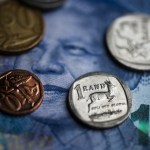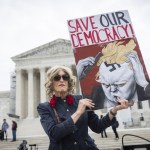* Social Democrats narrowly win election -provisional results
* SPD’s Scholz to start sounding out potential coalition partners
* Conservative Laschet also vows to seek coalition
* Chancellor Angela Merkel did not seek a fifth term
By Emma Thomasson and Paul Carrel
The Social Democrats’ chancellor candidate, Olaf Scholz said he aimed to build a coalition with the Greens and the liberal Free Democrats (FDP), saying Germans had voted to send Angela Merkel’s conservatives into opposition after 16 years in power.
“What you see here is a very happy SPD,” Scholz, 63, told cheering supporters at his party’s headquarters in Berlin, clutching a bunch of red and white flowers.
“The voters have very clearly spoken… They strengthened three parties – the Social Democrats, Greens and FDP – and therefore that is the clear mandate the citizens of this country have given – these three should form the next government.”
The SPD won 25.7% of the vote, ahead of 24.1% for Merkel’s CDU/CSU conservative bloc, according to provisional results. The Greens came in at 14.8% and the FDP were on 11.5%.
The SPD’s recovery marks a tentative revival for centre-left parties in parts of Europe, following the election of Democrat Joe Biden as U.S. president in 2020. Norway’s centre-left opposition party also won an election earlier this month.
Scholz, who was finance minister in Merkel’s outgoing ‘grand coalition’, said on Sunday he hoped to agree a coalition before Christmas. But his Christian Democrat rival Armin Laschet, 60, said he could still try to form a government despite leading the conservatives to their worst ever election result.
Merkel, who did not seek a fifth term as chancellor, will stay on in a caretaker role during the coalition negotiations that will set the future course of Europe’s largest economy.
INVESTOR RELIEF
German shares rose on Monday, with investors pleased that the pro-business FDP looked likely to join the next government while the far-left Linke failed to win enough votes to be considered as a coalition partner.
“From a market perspective, it should be good news that a left-wing coalition is mathematically impossible,” said Jens-Oliver Niklasch, LBBW economist, adding that other parties had enough in common to find a working compromise.
“Personalities and ministerial positions will probably be more important in the end than policies.”
The parties will start sounding each other out on Monday about possible alliances in informal discussions.
The Greens and FDP said late on Sunday they would first talk to each other to seek areas of compromise before starting negotiations with either the SPD or the conservatives.
If Scholz succeeds in forming a coalition, the former mayor of Hamburg would become only the fourth post-World War Two SPD chancellor and the first since Merkel took over from Gerhard Schroeder in 2005.
Merkel has stood large on the European stage since then – when George W. Bush was U.S. president, Jacques Chirac was French leader and Tony Blair the British prime minister.
But Berlin’s allies in Europe and beyond will probably have to wait months before they can see how the new German government will engage on international issues.
Assuming Scholz can agree a deal with the Greens and the FDP, the Greens could provide the foreign minister, as they did with Joschka Fischer in their previous two-way alliance with the SPD, while the FDP has its eyes on the finance ministry.
A row between Washington and Paris over a deal for Australia to buy U.S. instead of French submarines has put Germany in an awkward spot between allies, but also gives Berlin a chance to heal relations and help rethink a common Western stance on China.
On economic policy, French President Emmanuel Macron is eager to forge a common European fiscal policy, which the Greens support but the CDU/CSU and FDP reject. The Greens also want “a massive expansion offensive for renewables”.
One thing is certain: the future government will not include the far-right Alternative for Germany (AfD), which scored 10.3% on Sunday, down from 12.6% four years ago when they stormed into the national parliament for the first time. All mainstream politicians rule out a coalition with the party.
(Writing by Emma Thomasson; Editing by Tomasz Janowski and Gareth Jones)






















 Become an Insider
Become an Insider
Comments - Please login in order to comment.